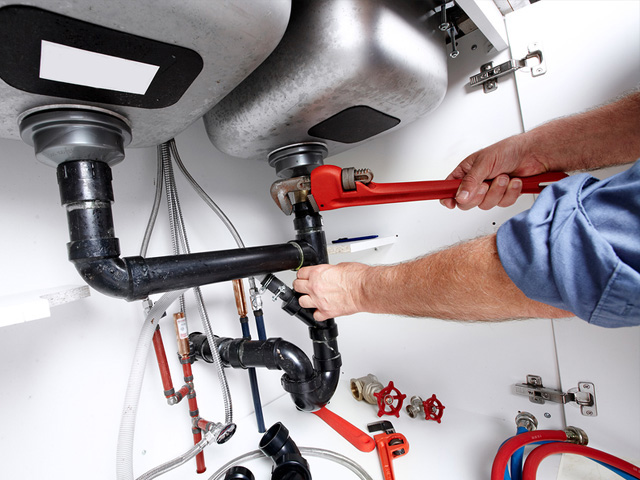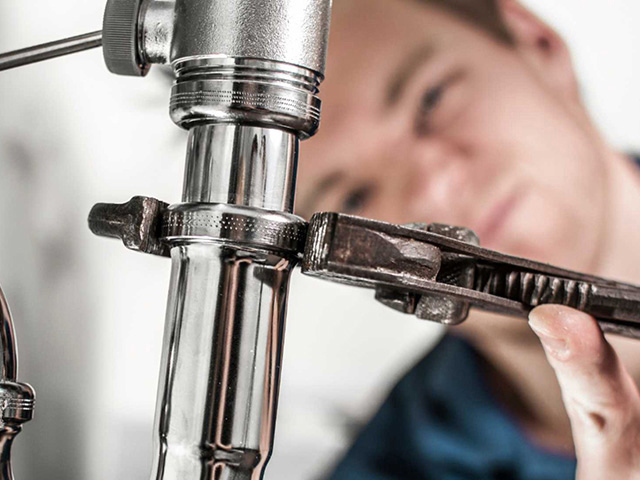In today’s world, sustainability has moved from being a mere buzzword to a critical necessity. As environmental concerns mount and resources dwindle, societies globally are seeking ways to live more sustainably. One often overlooked yet crucial aspect of sustainable living is plumbing. Effective plumbing systems can significantly reduce water waste, conserve energy, and promote healthier living environments. This blog post delves into the pivotal role of plumbing in fostering sustainable living, exploring its impact on water conservation, energy efficiency, and overall environmental health.
Water Conservation
Water is a finite resource, essential for all forms of life. However, fresh water availability is decreasing due to pollution, overuse, and climate change. Plumbing plays a crucial role in water conservation, one of the key pillars of sustainability. Modern plumbing systems are designed to minimize water wastage through several innovative approaches.
- Low-flow Fixtures: One of the most effective ways to conserve water is by installing low-flow fixtures. These include low-flow toilets, showerheads, and faucets that use significantly less water than traditional ones. For instance, a standard showerhead uses about 2.5 gallons of water per minute, while a low-flow showerhead can reduce this to 1.5 gallons per minute without compromising the shower experience.
- Dual-flush Toilets: Dual-flush toilets offer two flush options: a lower volume flush for liquid waste and a higher volume flush for solid waste. This system can save a significant amount of water over time, as liquid waste typically requires less water to flush.
- Leak Detection and Repair: Plumbing systems equipped with leak detection technology can identify and alert homeowners to leaks promptly. Addressing leaks quickly prevents water wastage, which can otherwise amount to hundreds of gallons of lost water daily.
- Greywater Systems: Greywater refers to gently used water from sinks, showers, and laundry that can be recycled for non-potable uses such as irrigation and toilet flushing. Implementing greywater systems in homes and buildings can reduce the demand for fresh water and promote a more sustainable water management approach.
Energy Efficiency
Plumbing also plays a significant role in enhancing energy efficiency within homes and buildings. Heating water accounts for a substantial portion of household energy use, and improving the efficiency of water heating systems can lead to considerable energy savings.
- Tankless Water Heaters: Unlike traditional water heaters that maintain a large tank of hot water, tankless water heaters heat water on demand. This reduces the energy lost in maintaining the temperature of stored water and provides hot water only when needed.
- Insulated Pipes: Insulating hot water pipes reduces heat loss, ensuring that water remains hot as it travels from the heater to the tap. This not only saves energy but also reduces the time spent waiting for hot water, thus conserving water.
- Solar Water Heating: Solar water heating systems use the sun’s energy to heat water, significantly reducing the need for conventional energy sources. While the initial installation cost can be high, the long-term savings in energy bills and the environmental benefits make it a worthwhile investment.
- Water-efficient Appliances: Modern dishwashers and washing machines are designed to use less water and energy. Opting for Energy Star-rated appliances ensures that households minimize their environmental footprint while saving on utility bills.
Promoting Health and Well-being
Sustainable plumbing practices also contribute to healthier living environments. Proper sanitation and access to clean water are fundamental to public health, and modern plumbing innovations are making significant strides in this area.
- Safe Drinking Water: Advanced filtration systems and backflow prevention devices ensure that drinking water remains free from contaminants. This is particularly important in areas where water quality may be compromised by industrial pollutants or aging infrastructure.
- Efficient Waste Management: Modern sewage systems effectively manage waste, preventing contamination of water sources and reducing the spread of waterborne diseases. Innovations in septic systems and wastewater treatment also play a role in promoting environmental health.
- Reduction of Chemical Use: Water-efficient plumbing reduces the need for harsh chemicals to clear clogs or maintain pipes. This not only protects water quality but also reduces the environmental impact of chemical production and disposal.
Innovations Driving Sustainable Plumbing
The plumbing industry is continually evolving, with new technologies and practices driving sustainability. Some notable innovations include:
- Smart Plumbing Systems: Smart technology is transforming plumbing by enabling real-time monitoring and control of water use. Smart meters, leak detectors, and automated shut-off valves help homeowners track water usage, detect leaks early, and reduce waste.
- Rainwater Harvesting: Collecting and storing rainwater for non-potable uses like irrigation and toilet flushing reduces the demand on municipal water supplies. Advanced filtration systems can even make rainwater safe for drinking in some cases.
- Green Plumbing Certification: Programs like Green Plumbers USA offer certification and training for plumbers in sustainable practices. Certified green plumbers are equipped with the knowledge and skills to implement eco-friendly solutions in homes and buildings.
- Composting Toilets: In areas where water is scarce, composting toilets offer a sustainable alternative to traditional flush toilets. These systems use little to no water and convert human waste into compost, reducing the strain on water resources and minimizing environmental impact. If you are interested in learning more about plumbing in sustainable living, you may visit https://hi-techplumbingandair.com/plumbing/backflow-prevention/ for further info.

The Future of Sustainable Plumbing
As the global population grows and environmental challenges intensify, the importance of sustainable plumbing will only increase. Future advancements are likely to focus on enhancing efficiency, integrating renewable energy sources, and promoting water reuse and recycling.
- Water Recycling Systems: Innovations in water recycling will play a crucial role in future sustainable living. Systems that can purify and recycle greywater and even blackwater (sewage) will become more prevalent, reducing the demand for fresh water and minimizing wastewater discharge.
- Advanced Materials: The development of new materials for pipes and fixtures that are more durable, efficient, and environmentally friendly will contribute to the sustainability of plumbing systems. Materials that resist corrosion and reduce the need for chemical treatments will be particularly valuable.
- Integrated Building Design: Sustainable plumbing will be integrated into the overall design of buildings, creating systems that are more efficient and harmonious with other sustainability measures. This holistic approach will optimize resource use and enhance the overall sustainability of living environments.
Conclusion
The role of plumbing in sustainable living is multifaceted and vital. From conserving water and energy to promoting health and well-being, modern plumbing practices and innovations are essential to creating a sustainable future. By embracing these advancements and continuing to seek new solutions, we can ensure that our plumbing systems contribute to a healthier, more sustainable world for generations to come.










